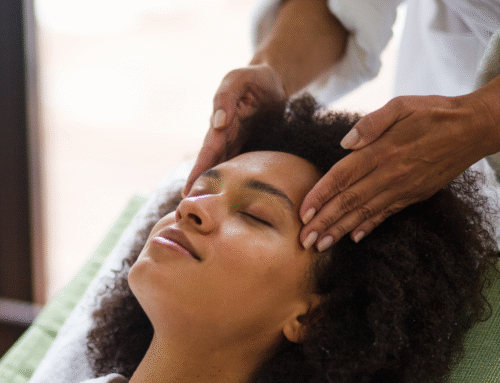In our fast-paced world, where wellness trends come and go, one essential aspect of health often gets overlooked—hydration. We may carry water bottles, sip herbal teas, and track our fluid intake on apps, but how often do we truly ask: Am I hydrating the way my body and mind actually need?
In Traditional Chinese Medicine (TCM), hydration is about more than just drinking eight glasses of water a day. It’s about nourishing your body’s vital fluids, supporting your organs, and maintaining the natural balance of Yin and Yang.
Hydration in TCM: It’s Not Just Water
In TCM, the concept of Jin Ye (津液) refers to the body’s fluids—ranging from thin fluids like sweat and saliva to thicker, more nourishing fluids that lubricate the joints and organs. These fluids play a key role in keeping your body moist, cool, and functioning smoothly.
When you’re dehydrated—whether from not drinking enough, sweating excessively, or eating too much spicy, dry, or greasy food—your Yin becomes depleted. This can lead to symptoms such as:
-
Dry mouth and throat
-
Constipation
-
Dull skin or dry hair
-
Fatigue or irritability
-
Heat sensations, especially in the afternoon or at night
From a TCM perspective, fluid deficiency is a Yin deficiency, which can disturb your internal harmony and leave you more vulnerable to illness, stress, and fatigue.
Are You Drinking Correctly?
TCM emphasizes not just what you drink, but how and when you drink:
1. Warm Over Cold
Iced water may be refreshing on a hot day, but it can damage your Spleen and Stomach Qi, the core of your digestive system. Cold drinks are believed to “put out the fire” your digestion needs to work properly. Stick with room temperature or warm fluids whenever possible.
2. Sip, Don’t Gulp
Instead of chugging large amounts of water at once, which can overwhelm your system, try sipping water slowly throughout the day. This supports steady absorption and fluid distribution.
3. Include Hydrating Foods
Watermelon, cucumber, pears, and soups like mung bean or lotus root soup are incredibly hydrating from a TCM perspective. Herbal teas such as chrysanthemum, goji berry, or barley tea also support fluid replenishment and help clear internal heat.
4. Avoid Overhydration
Yes, there can be too much of a good thing. Excessive water can dilute digestive juices, weaken the Spleen, and create Dampness—leading to bloating, fatigue, and foggy thinking. Balance is key.
Hydration as Prevention
In TCM, prevention is the highest form of medicine. Keeping your body adequately hydrated supports:
-
Healthy skin and a youthful glow
-
Smooth digestion and bowel movements
-
Clear thinking and emotional stability
-
Immune strength, especially in dry or cold seasons
Seasonal dryness, especially in autumn, can sap your body of moisture. This is the time to focus on Yin-nourishing foods and fluids to protect the Lungs, which are especially vulnerable to dryness.
Final Thoughts: Listen to Your Body
While modern health advice often gives blanket recommendations, TCM teaches us to listen to our own body’s signals. Are you waking up thirsty? Is your tongue dry or cracked? Do you feel parched after meals or exercise?
These signs may be your body’s way of saying it needs more Jin Ye, more nourishment, more care.
Your Daily Practice:
-
Start your morning with a warm glass of lemon water or goji berry tea.
-
Sip warm water or mild herbal tea during the day.
-
Eat more soups, broths, and hydrating fruits.
-
Limit iced drinks and processed, salty foods.
Hydration isn’t just a physical act—it’s an energetic one. It’s how we honor our bodies, support our internal balance, and move toward wellness with each conscious sip.
Are you hydrating enough? Your body already knows the answer—now it’s time to listen.







Leave A Comment